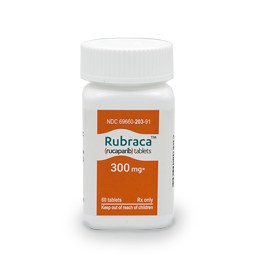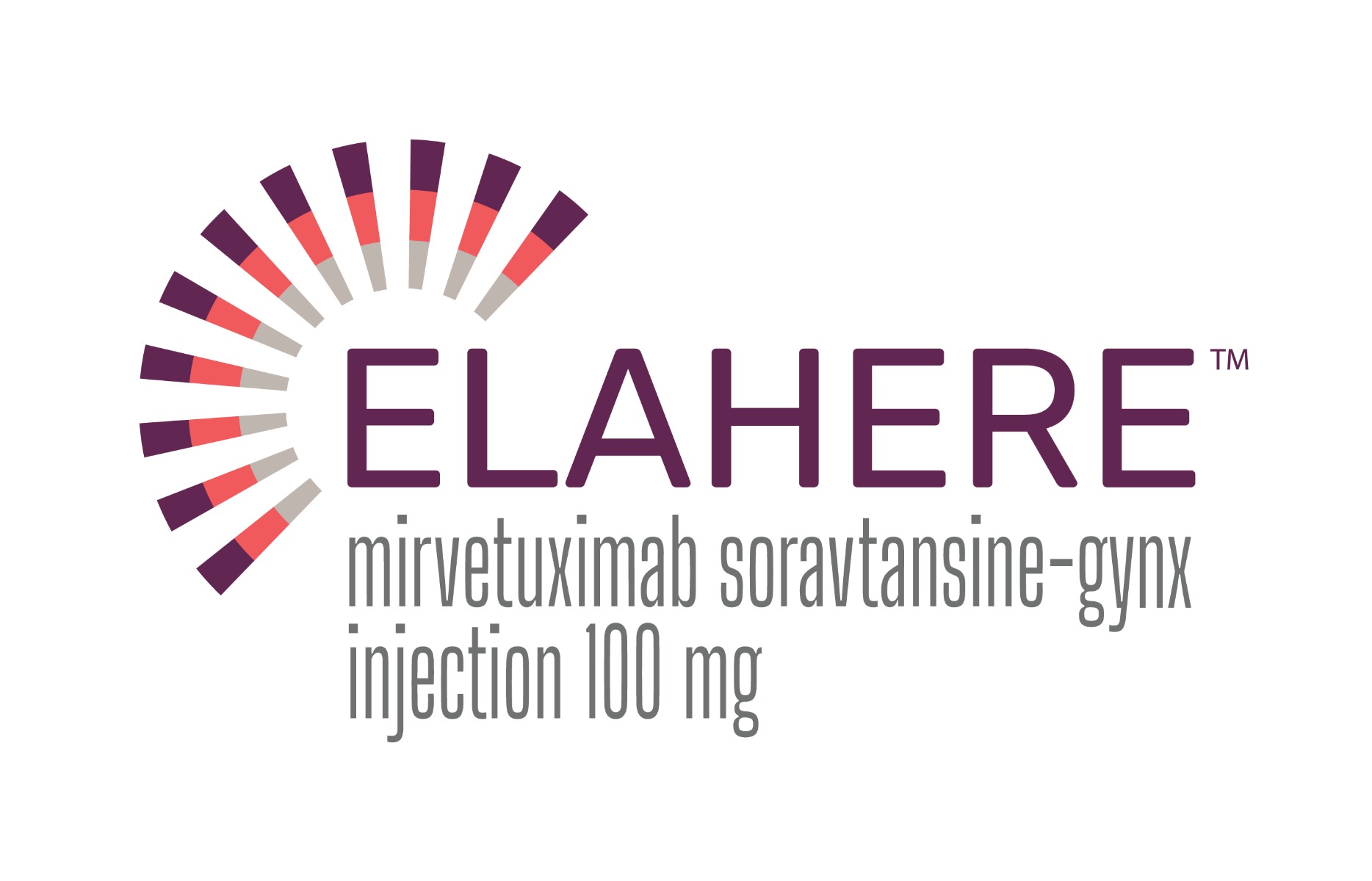Rubraca (rucaparib) vs Elahere (mirvetuximab soravtansine-gynx)
Rubraca (rucaparib) vs Elahere (mirvetuximab soravtansine-gynx)
Rubraca (rucaparib) is a small molecule inhibitor of the PARP enzyme, used primarily in the treatment of certain types of ovarian cancer, including maintenance treatment for women with recurrent epithelial ovarian, fallopian tube, or primary peritoneal cancer who are in a complete or partial response to platinum-based chemotherapy. Elahere (mirvetuximab soravtansine-gynx) is an antibody-drug conjugate targeting the folate receptor alpha, indicated for the treatment of adults with folate receptor alpha-positive, platinum-resistant epithelial ovarian, fallopian tube, or primary peritoneal cancer, who have received one to three prior systemic treatment regimens. When deciding between these two medications, it is crucial to consider the specific molecular characteristics of the cancer, previous treatments, and the patient's overall health profile, as each drug targets different pathways and has distinct indications and side effect profiles.
Difference between Rubraca and Elahere
| Metric | Rubraca (rucaparib) | Elahere (mirvetuximab soravtansine-gynx) |
|---|---|---|
| Generic name | Rucaparib | Mirvetuximab soravtansine-gynx |
| Indications | Ovarian cancer, fallopian tube cancer, primary peritoneal cancer | Ovarian cancer |
| Mechanism of action | Poly(ADP-ribose) polymerase inhibitor | Antibody-drug conjugate targeting folate receptor alpha |
| Brand names | Rubraca | Elahere |
| Administrative route | Oral | Intravenous |
| Side effects | Nausea, fatigue, vomiting, anemia, dysgeusia, AST/ALT elevation, decreased appetite, diarrhea, thrombocytopenia, increased creatinine, neutropenia, nasopharyngitis, dyspnea, rash, constipation, abdominal pain, headache | Fatigue, diarrhea, nausea, abdominal pain, neutropenia, vomiting, constipation, decreased appetite, peripheral neuropathy, urinary tract infection, dyspnea, anemia, lymphopenia, cough |
| Contraindications | Hypersensitivity to rucaparib or any component of the formulation | Hypersensitivity to mirvetuximab soravtansine-gynx or any component of the formulation |
| Drug class | PARP inhibitor | Antibody-drug conjugate |
| Manufacturer | Clovis Oncology | ImmunoGen, Inc. |
Efficacy
Efficacy of Rubraca (rucaparib) in Gynecological Cancer
Rubraca (rucaparib) is a poly (ADP-ribose) polymerase (PARP) inhibitor indicated for the treatment of certain types of gynecological cancers, specifically ovarian cancer. It has shown efficacy in patients with deleterious BRCA mutation (germline and/or somatic)-associated epithelial ovarian, fallopian tube, or primary peritoneal cancer who have been treated with two or more chemotherapies. Rubraca has been approved for the maintenance treatment of adult patients with recurrent epithelial ovarian, fallopian tube, or primary peritoneal cancer who are in a complete or partial response to platinum-based chemotherapy. Clinical trials have demonstrated that Rubraca significantly improves progression-free survival compared to placebo in these patients, marking a noteworthy advancement in the management of BRCA-mutated ovarian cancer.
In addition to its use as a maintenance therapy, Rubraca has also been granted accelerated approval for the treatment of adult patients with BRCA mutation-associated recurrent epithelial ovarian, fallopian tube, or primary peritoneal cancer who have been treated with two or more chemotherapies and who have selected for therapy based on an FDA-approved companion diagnostic for Rubraca. The efficacy of Rubraca in this setting was established in two single-arm clinical trials where a portion of patients experienced a significant and durable objective response rate, further underscoring its potential as a targeted therapy for gynecological cancers with specific genetic profiles.
Efficacy of Elahere (mirvetuximab soravtansine-gynx) in Gynecological Cancer
Elahere (mirvetuximab soravtansine-gynx) is an investigational antibody-drug conjugate targeting the folate receptor alpha (FRα), which is frequently overexpressed in gynecological cancers, including ovarian cancer. As of the knowledge cutoff in 2023, Elahere has not yet received approval from regulatory agencies and is being evaluated in clinical trials for its efficacy and safety in patients with FRα-positive, platinum-resistant ovarian cancer, among other gynecological malignancies. The clinical trials are designed to assess the efficacy of Elahere by measuring outcomes such as progression-free survival, overall survival, and objective response rate in this patient population.
Early clinical data from these trials have shown promising signs of activity in heavily pre-treated ovarian cancer patients with FRα-positive disease. However, the full extent of Elahere's efficacy and its potential role in the treatment landscape of gynecological cancers will be determined upon the completion of ongoing phase III trials and the subsequent review by regulatory authorities. Given the targeted nature of the therapy, Elahere represents a novel approach to treating gynecological cancers that could offer a new option for patients with limited treatment choices.
Regulatory Agency Approvals
Rubraca
-
European Medical Agency (EMA), European Union

-
Food and Drug Administration (FDA), USA

Elahere
-
Food and Drug Administration (FDA), USA

Access Rubraca or Elahere today
If Rubraca or Elahere are not approved or available in your country (e.g. due to supply issues), you can access them via Everyone.org.
How it works

Make an enquiry
Choose the medicine you want to buy, answer a couple of questions, and upload your prescription to speed things up. We’ll get back to you within 24 hours.


Make an enquiry
Choose the medicine you want to buy, answer a couple of questions, and upload your prescription to speed things up. We’ll get back to you within 24 hours.


Breeze through the paperwork
We'll guide you through the required documents for importing unapproved medicine, ensuring you have all the necessary information.


Get a personalized quote
We’ll prepare a quote for you, including medicine costs and any shipping, administrative, or import fees that may apply.


Receive your medicine
Accept the quote and we’ll handle the rest - sourcing and safely delivering your medicine.

Some text on this page has been automatically generated. Speak to your physician before you start a new treatment or medication.
Let's talk
If you have any questions, call us or send us a message through WhatsApp or email:
Contact us




